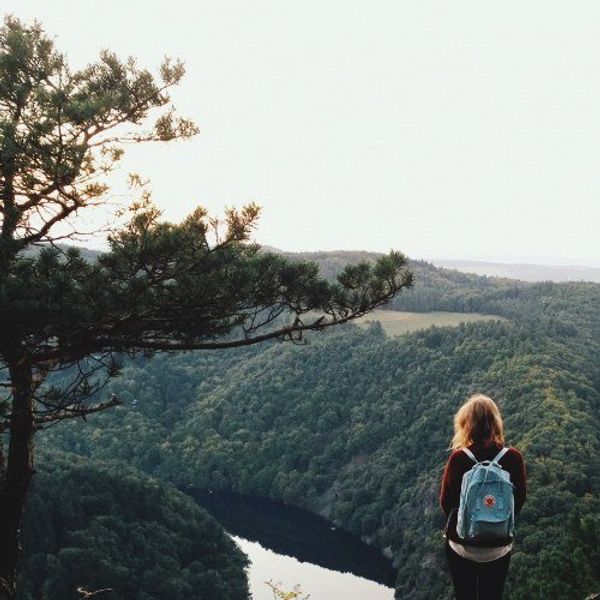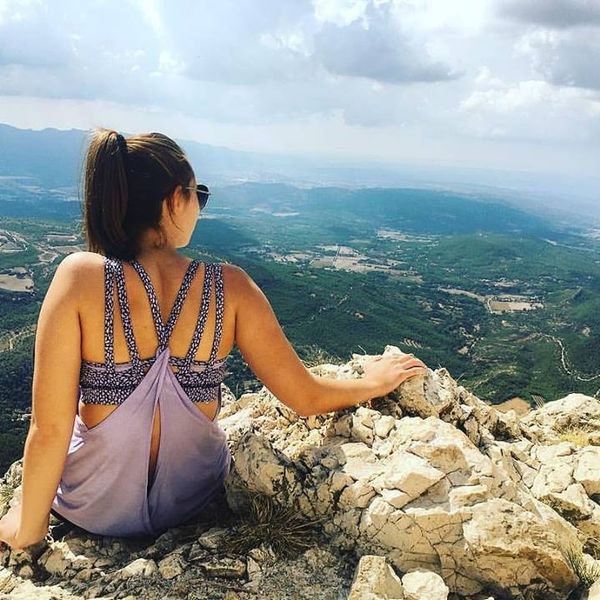Upon returning to Athens after a weekend trip to Budapest, my friends and I decided to take an Uber back to our apartments. It's cheaper than a cab and faster than the metro and we were all tired and ready to get back to our beds. Our Uber driver was a nice Greek man whom we'll call Nick. Nick was probably a little older than he looked (the Greeks age miraculously well), spoke very good English, and enjoyed friendly conversation. We learned that Nick's wife was from New York and that they both traveled frequently. He talked about his trips to different countries all over Europe, so we naturally asked if he had ever been to North America. He said that he'd spent a little time in Canada (much to the excitement of our Canadian friends), but admitted that he'd never been to America. "You have to go to America!" We Americans insisted, full of enthusiasm and national pride.
"I would," Nick said, "but now is not a good time. It's not safe there."
When people ask me about my time in Greece we inevitably talk about safety. After "How was it?" "Was the food amazing?" and "Did you find a nice Greek boy?" comes a starkly serious, "Did you feel safe there?" If I don't seem to respond to the severity of the question they'll often clarify, "You know, with the financial situation and the refugees and all."
The crisis, a term which encapsulates the financial, social, and political turmoil that Greece has been experiencing since 2008, is a serious issue, as is the refugee crisis which has recently pulled Greece and the rest of Eastern Europe into the international media spotlight once again. Despite the gravity of both issues, it was hard for me to take the question of whether or not I felt safe in Greece seriously the first couple of times that it was asked. My hesitant and pretentiously amused answer was always yes, but it took a while for me to elaborate on that. Yes, the financial situation in Greece is still rather grim, but I don't hold a Greek bank account, so, aside from price changes, I was rather unaffected. Yes, many Greeks are upset with the state of affairs in Greece right now and, yes, many of them are not hesitant nor afraid to let their government know that they're upset. But demonstration culture in Greece is not meant to hurt people, it's meant to send a message to politicians that something needs to change, so I was never threatened. Yes, there has been a massive influx of refugees into Greece, but those refugees are just people trying to find a safe place to live, so my safety was never jeopardized. It's understandable that these issues sound dangerous in a blurb on the news, but, as we've all been made well aware, the media is hardly ever unbiased and objective.
Conversely, it wasn't uncommon for me to hear from Greeks that America is not a safe place to be. Nick, our Uber driver, was one of the many people who I talked to who brought up how dangerous he thinks that America is right now. He was referring to gun control laws when he said America wasn't safe and he was certainly not alone among the Greeks who I talked to in his incredulity that American citizens are allowed to own and carry guns. A student who I chatted with at the Athens Law School told me that she wanted to move to America to practice criminal law because, "You have psychopaths there." She felt that it would be easier for her to find work. One of my friends who worked at a local bakery told me that she had heard that there was another shooting in America and wondered if I was worried about going home. Pretty much everyone was confused about Donald Trump.
At the same time that my American friends and family were reading about the crisis and refugees in Greece, my Greek friends were reading about mass shootings and Donald Trump in America. Both sides interpret the other through the lens of their own culture, often overlooking the fact that perceptions of risk and safety are cultural in the same way that meal times and sleeping times are cultural. Thus, it can sometimes be difficult to conceptualize that what one side understands as a normal amount of risk, the other considers too dangerous to be livable. That's not to say that all countries that are considered dangerous are simply culturally misunderstood. There are parts of the world in states of serious peril and there are people there who do not feel safe in their own homes. Nevertheless, it is far too easy to look at another country's problems and shudder without keeping in mind the problems that one has in their own.























